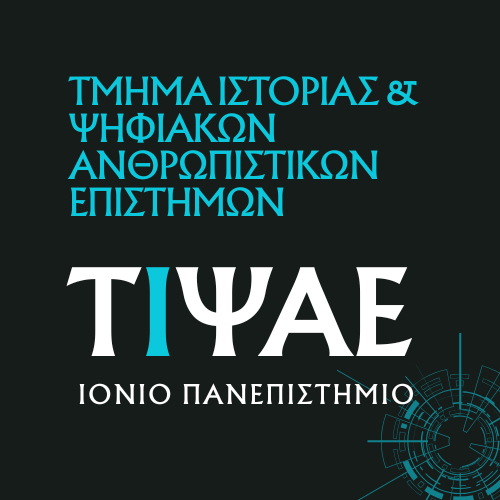HISTORY OF THE FRENCH REVOLUTION: PHILOSOPHICAL AND HISTORIOGRAPHICAL APPROACHES
Teaching Staff: Kokkomelis Nikos, Vaki Fotini
Course Code: ΙΝΧ209
Course Type: Compulsory Elective
Course Level: Undergraduate
Course Language: Greek
Delivery method: Lectures
Semester: 7th
ECTS: 5
Teaching Hours: 3
E Class Page: https://opencourses.ionio.gr/courses/DHI357/
Curricula: Curriculum in History up to 2024-25, Curriculum in History and Digital Humanities from 2025
A turning point in history and a founding moment of modernity, the French Revolution can be seen as an 'unprecedented' event. Although the debate about its origins in the genealogy of revolutionary phenomena is still open, its significance for the modern world is fundamental. Features such as human rights, individual freedoms, egalitarianism, parliamentary representation, liberal political and economic ideology and the theory of 'revolutionary violence' are products of the political and social ferment of the period 1789-1799. The course focuses on the root causes of the French Revolution, its various phases, its effects, the memory of the revolutionary period and its multiple readings in later years.
Upon completion of the semester, students will be able to understand the importance of the French Revolution as a turning point in the study of historical times. Particular attention will be paid to the periodization and characteristics of its successive phases as well as its radical modern character. By discussing the historiographical scheme of the "Age of Revolutions", students will be able to understand the French Revolution as the beginning of a pan-European legacy of revolutionary uprisings and to delve into its specific issues such as Terrorism, the Civil War, radicalization, State-Church relations, the Declaration of the Rights of Man and the Citizen and the abolition of slavery. Since the course is structured with the ambition that students become familiar with the contemporaneity of historical practice, teaching aims to present the historiographical debate surrounding interpretations of the French Revolution as it has been shaped from the 18th century to the present day.
1st Lecture: Introduction. Elements on the theory of revolutions.
Lecture 2: Pre-revolutionary France.
Lecture 3: Events I: 1789 - 1794.
Lecture 4: Events II: 1794 - 1799.
Lecture 5: The "Age of Revolutions".
Lecture 6: Special topics I: press and salons.
Lecture 7: Special Topics II: Empire and Slavery.
Lecture 8: The historiography of "equalization" : Edmund Burke - Hippolyte Taine.
Lecture 9: The "liberal" historiography : François Guizot, François Mignet, Alexis de Tocqueville.
Lecture 10: Louis Bonaparte's 18th Brumaire and "classical" historiography: Albert Mathiez, Georges Lefebvre, Albert Soboul.
Lecture 11: The "revisionist" moment: François Furet - Denis Richet.
Lecture 12: Contemporary interpretations of violence: Patrice Gueniffey - Annie Jourdan.
Lecture 13: "A pebble in the pond": Adamantios Korais and the French Revolution
(Only general works and textbooks in Greek are listed. Supplementary or more specific bibliography will be provided per lecture and on a case-by-case basis)
- Μπαλωτή Ξένη, Γαλλική Επανάσταση (1789-1799), Βιβλιοπωλείον της Εστίας, Αθήνα 2020.
- Μπαλωτή Ξένη, Η Γαλλική Επανάσταση. Η γέννηση της σύγχρονης δημοκρατίας, Περισκόπιο, Αθήνα 2005.
- Burke Edmund, Στοχασμοί για την επανάσταση στη Γαλλία, μτφ. Χρήστος Γρηγορίου, εκδόσεις Σαββάλας, Αθήνα 2010.
- Furet François – Richet Denis, Η γαλλική επανάσταση, μτφ. Βασιλική Μαργαρώνη, Ηλίας Αθανασιάδης, Βιβλιοπωλείον της Εστίας, Αθήνα 1997.
- Hobsbawm Eric, Η εποχή των επαναστάσεων (1789-1848), μτφ. Μαριέτα Οικονομοπούλου, ΜΙΕΤ, Αθήνα 1990.
- Jourdan Annie, Νέα ιστορία της Γαλλικής Επανάστασης, μτφ. Κώστας Γαγανάκης, εκδόσεις Πόλις, Αθήνα 2023.
- Lefebvre Georges, Η Γαλλική Επανάσταση, μτφ. Σπύρος Μαρκέτος, ΜΙΕΤ, Αθήνα 2003.
- Mathiez Albert, Ιστορία της Γαλλικής Επανάστασης, μτφ. Αναστάσιος Γιανναράς, εκδόσεις Γκοβόστη, Αθήνα 2019.
- Vuillard Eric, 14η Ιουλίου, μτφ. Μανώλης Πιμπλής, εκδόσεις Πόλις, Αθήνα 2019.
Written exam
Back



